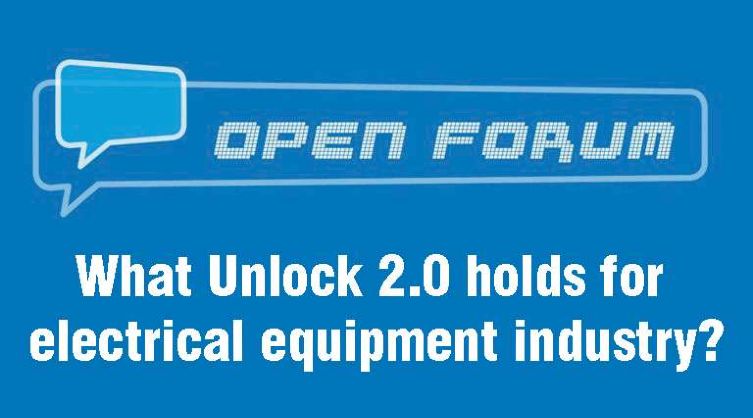What Unlock 2.0 holds for electrical equipment industry?
By EPR Magazine Editorial September 19, 2020 11:40 am IST
By EPR Magazine Editorial September 19, 2020 11:40 am IST


Latish Babu, Director, Power & Grid Segment, Schneider Electric India
Remote Management is the new and innovative way of operations, maintenance, remote meter reading, remote asset management, efficient inter-department communication, enhanced optimization and make quick and right contextual operational decisions with actionable insights that drive efficiency. Digitised tools connect the remote experts for faster diagnosis and enable them to monitor equipment’s in the substation remotely.
Another trend to witness is how the ‘new normal will impact the country’s on-going energy transition, with a shift to clean renewable energy. Government’s actions are fast infusing renewables in to the system. Also, an acceleration in the adoption and integration of technology is much required.

Robert H.K. Demann, Head – Smart Infrastructure, Siemens Ltd.
Given the overall need to build new infrastructure and modernize existing infrastructure, the long-term market conditions will remain attractive for the electrical equipment industry.
With renewed focus on Atmanirbhar Bharat (self-reliant India), electrical equipment industry is well equipped with required infrastructure support, technical knowledge, to fulfil the demand of power sector. With customer interactions being limited because of pandemic led restriction on mobility, faster deployment of smart metering will help the distribution companies with automated accurate billing without risking the lives and better operational efficiency with real time system information.

Syed Sajjadh Ali, Managing Director – India, Electrical Sector, Eaton
The Unlock 2.0 further reinforces the need to have extremely safe manufacturing and operations practices, which has to ensure that all the employees are maintaining safety protocols of social distancing and use of PPE thereby ensuring safe workplaces as well as contamination free equipment. The manufacturing lines are getting realigned to meet these safety requirements. We also believe that the government will continue to take stronger initiatives to drive the economy and the focus on improvement of the distribution network and its efficiency will continue to be a priority. The ‘Make in India’ initiative will get higher momentum, however, the need to continue to allow imports of quality products from global manufactures should be permitted with proper controls.
We use cookies to personalize your experience. By continuing to visit this website you agree to our Terms & Conditions, Privacy Policy and Cookie Policy.